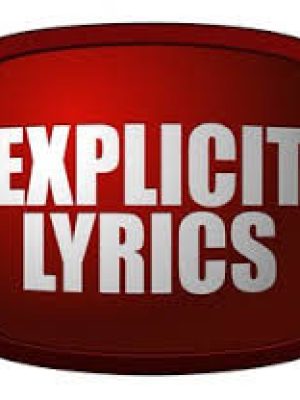Is Vulgarity The New Trend?
Are you too tired of all the crap that comes out of nowhere in a perfectly smooth-going song?
Because we sure are. Music labels forgetting the essence of music and creating vulgarity in the
name of rap is one of the most heartbreaking things we have experienced in the last decade. With
2022 being the icing on the cake, or do we say the final nail in the coffin? Let’s throw some light
on this emerging plague, shall we?
What Is Lyrical Etiquette?
This term might be new to many of you, so in general, lyrical etiquette uses appropriate language
in music and has been a controversial topic for many years. With vulgarity and profanity becoming
increasingly prevalent in all forms of media, from Disney to government, it begs the question: do
we just accept it as the norm?
Here Are A Few Salient Aspects Of Lyrical Etiquette
First of all, you got to respect other artists. No dissing or hating on other rappers just to make
yourself look better. That’s just weak and shows a lack of skills. Another thing to keep in mind is
being mindful of your language. Sure, it’s okay to use explicit language if that’s your style, but
make sure you’re not crossing any lines with hate speech or offensive language. Remember, your
words have power, and you need to use them responsibly. In short, lyrical etiquette is a necessity
if you wish to be a musician who wins hearts and not just contracts.
The Artist Or The Label – Who Is Responsible?
Many argue that the artist is at fault for the use of explicit language in their music. However, it is
important to consider the role of the record label and industry executives in this phenomenon. The
industry is driven by profit, and oftentimes, record labels and executives will push for the use of
explicit language in music because it is what they believe will sell. This pressure can lead to artists
feeling obligated to use explicit language in their music, even if it goes against their personal
beliefs or values.
It’s a tricky situation, as, on the one hand, the use of explicit language can be seen as a form of
artistic expression and a reflection of reality. On the other hand, it is a cheap tactic to gain attention
and boost sales. The use of explicit language in music also raises the question of responsibility and
accountability. Are the artists solely responsible for the language used in their music, or should
the industry as a whole take responsibility for the content it promotes?
Surface Painted Songs
The issue of vulgarity is further compounded by the fact that many radio stations and DJs are
required to play “clean” versions of songs in their musical rotation. It can often lead to a sanitized
version of the original song. This can be frustrating for both the artist and the listener, as the clean
version may not accurately represent the artist’s intended message or emotion.
Is Vulgarity The Only Way?
One must note that plenty of artists have succeeded in the music industry without using explicit
language in their songs. They have proven that creating meaningful and impactful music is possible
without resorting to vulgarity. It’s also crucial that listeners take responsibility for what they choose
to consume and support artists who align with their values. Together, we can break the stereotype
and bring a change, can we not?
KMEB Will Continue To Play Its Part
We at KMEB take great pride in the music we play and the content we provide to our listeners.
We believe that music should be uplifting, inspiring, and positive. With that said, we do not support
using vulgar language or offensive lyrics in music. Our radio station strives hard to bring you the
best music without compromising our values.
We believe that music can be enjoyed without the use of offensive language. However, despite our
best efforts, finding appropriate songs without cursing and cussing is nearly impossible now
because that is what’s being produced, and we sincerely apologize. We hope the lyrical etiquette
improves so the listeners can enjoy their listening experience without being exposed to offensive
language.
Why Should You Listen?
If we were to sum the topic up in one line, using explicit language in music is a complex issue that
raises essential questions about artistic expression, responsibility, and the industry’s role. While
accepting it as the norm may be tempting, it’s essential to consider its impact on both the artist and
the listener.
We must continue to have open and honest conversations about lyrical etiquette to push for a more
positive and uplifting musical landscape. The consumers of the music need to be vocal about their
music preferences, or else it wouldn’t take long for music to turn into another form of abuse.
